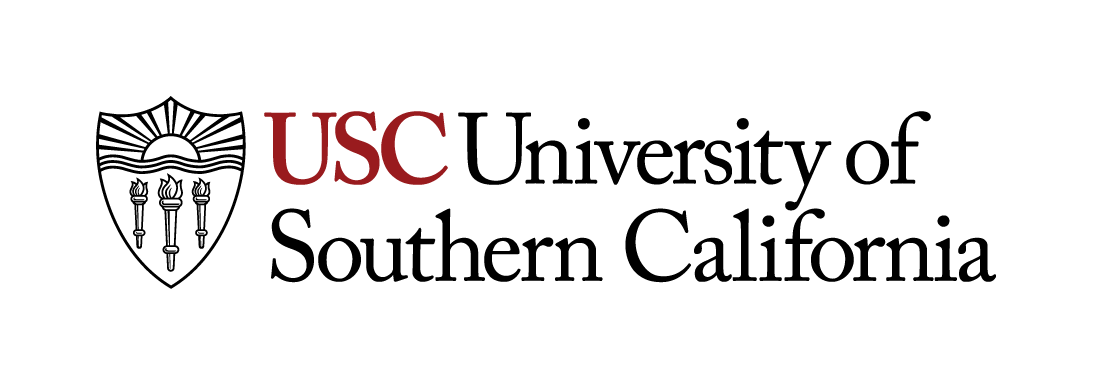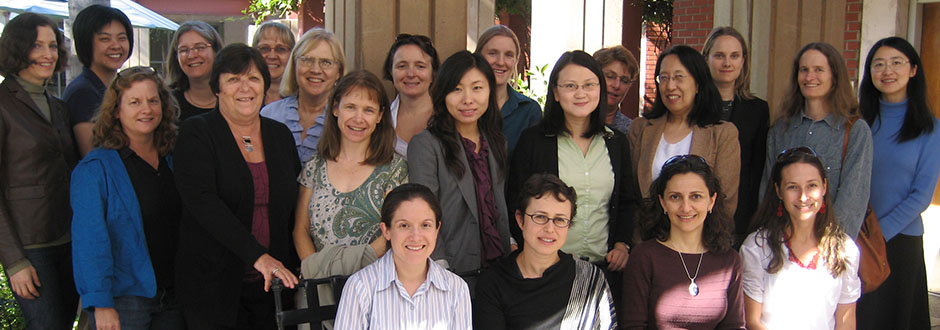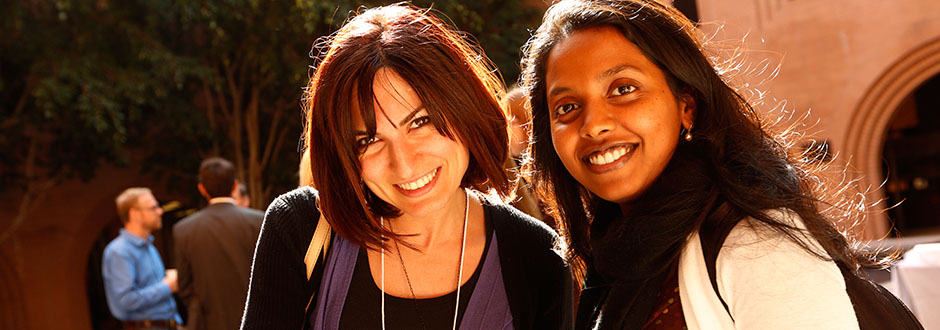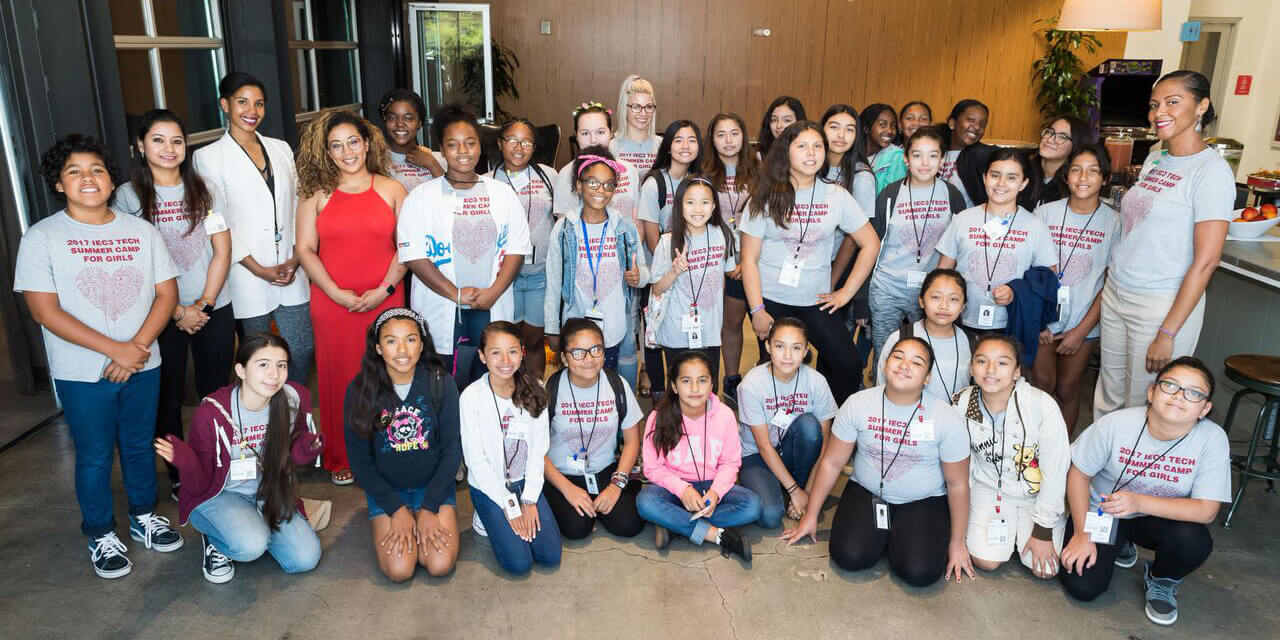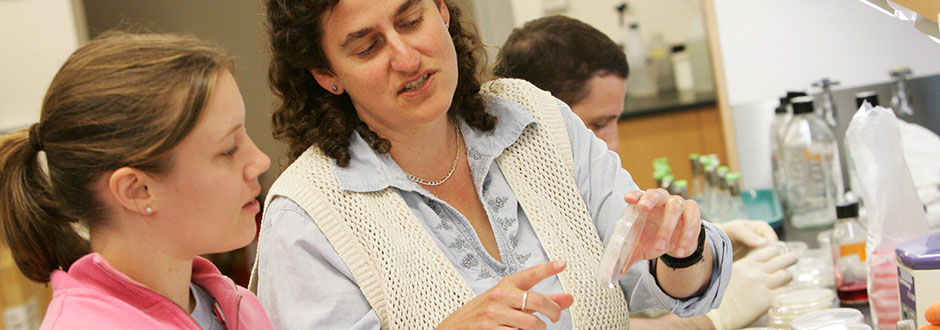Faculty Networking Group
The WiSE Faculty Networking Group provides an informal forum for women faculty (tenure-track and non-tenure-track) in science and engineering to communicate about topics of mutual interest and to discuss issues related to their career. The group was created in May 2000 and continues to meet for lunch once a month — typically at noon in DRB 232 on the last Thursday of the month. Coffee, tea, and cookies are provided.
The WiSE Networking Group:
- Creates a social environment that facilitates the exchange of information;
- Welcomes new women faculty at USC;
- Mentors women scientists across departments;
- Provides information on activities, funding opportunities and initiatives;
- Present scholarly work and initiates collaborations;
- Highlights achievements and provides leadership opportunities;
- Suggests new programs and activities to the USC WiSE Program;
- Discusses university policies and procedures that affect women, and hidden and subtle biases;
- Communicates to administrators issues and concerns related to gender;
- Provides an opportunity to relax and talk freely about any issue that affects women faculty, their lives and their careers.
History
The WiSE networking group at USC began in 2000 with the $20 million gift that created an endowment for the purpose of increasing the representation of women in science and engineering (WiSE) in the USC Dornsife College of Letters, Arts, and Sciences, and the Viterbi School of Engineering. The excitement and energy created by this gift generated discussions among faculty and administrators on how best to implement the program. A short email sent by the Provost Office on February 24, 2000 called for the first meeting of administrators and a few faculty to discuss how to set up programs that would help women at all stages of the their career, from undergraduate students to senior professors. Shortly after, several senior women faculty who got to know each other during those initial meetings decided that direct input from the group of WiSE faculty was essential to ensuring that the needs of women faculty were addressed. To this end, Hanna Reisler, a professor of chemistry, sent an email to the women faculty that she could identify inviting them to a series of meetings, the first of which took place in May 17, 2000. At this first meeting, it was agreed upon that hiring to achieve gender equity would be a long-term process that would have top priority, and that programs were also needed to offset the subtle biases that hinder the career advancement of women faculty. In addition, an informal networking group of WiSE faculty who would communicate by email and meet on the last Thursday of each month to discuss topics of common interest was organized. The first topic was naturally the creation of the USC WiSE Program — its goals and governance. From these initial meetings evolved the present WiSE networking lunch meetings. The following year a letter of invitation was sent to non-tenure-track women faculty (research and lecturers) to join the networking group; creating the current composition of the group. Today, the program is open to any faculty member who shares interests with the WiSE group and can benefit from networking. In 2011, the email list contained over 75 names; see a partial list at Current WiSE Faculty. The networking group has strong ties to the WiSE program, and its members serve on WiSE committees and the WiSE Advisory Board.
Activities
Providing an informal forum for discussion on issues that affect women’s careers
There is no formal agenda to the WiSE networking group lunch meetings, unless there is a request to discuss a specific topic. New faculty hiring, service on committees, funding, promotion, childcare, and partner hire are frequent topics of discussion. Women faculty who are mothers of young children exchange information on childcare and other issues related to combining career and family. Suggestions to the WiSE Program on possible activities are discussed periodically. External visitors, e.g. administrators and seminar speakers, are occasionally invited.
Creating a social environment that facilitates the exchange of information
In most departments there are only a few women faculty members and thus they often seek advice outside their department. Meeting women faculty face-to-face at lunches, receptions, and WiSE committees increases familiarity and facilitates further communication in one-on-one meetings. This is particularly important for new faculty who get a chance to meet other women with common interests.
Mentoring and coaching women scientists across departments
At USC, as in many other institutions, there are relatively few senior women faculty in science and engineering. These senior women often give advice to younger colleagues outside their departments on issues ranging from space preparation, grant submission, running a group, promotion, service on committees, requests to chairs and deans, conflicts between career and family, etc. Newly hired faculty often communicate with senior WiSE faculty even before they arrive.
Providing information on activities, funding opportunities, and initiatives
Recognizing that women scientists typically have fewer networking resources than men, members of the networking group share information on opportunities in and outside campus, and on possibilities of interdisciplinary collaborations.
Discussing scholarly work
Networking members give short presentations periodically on their research work, highlighting interdisciplinary aspects. These may lead to collaborations and further information exchange
Increasing recognition and providing leadership opportunities
Members of the networking group advertise the achievements of WiSE faculty, recommend them for awards, and submit their names as candidates for leadership positions. Serving on one of the WiSE committees is often the first service assignment of a WiSE faculty outside her department. Members of the WiSE group have served as department chairs, vice provosts, associate deans, chairs of university-wide committees, presidents of the Academic Senate and the College Faculty Council, etc. For recent achievements of WiSE faculty see the WiSE Program web site.
Suggesting new programs and activities to the USC WiSE Program
The WiSE networking group works closely with the Director and Manager of the WiSE Program in the provost’s office. The group suggests activities such as workshops and invitations to outstanding women scientists who are also active in WiSE affairs.
Examining university policies and procedures to eliminate hidden biases
Issues such as space allocation and preparation, promotion, attaining leadership positions in departments, family leave, etc. are frequent topics of lunch discussions.
Communicating with administrators on gender-related issues
Senior administrators whose responsibilities include topics of interest to the WiSE group are invited occasionally to acquaint them with WiSE faculty, educate them on gender-related challenges, discuss faculty hiring, etc. These meetings have proven to be very valuable.
